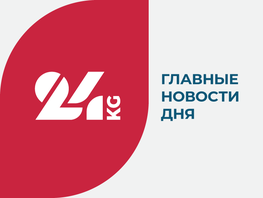The Organization for Security and Cooperation in Europe (OSCE) has prepared an opinion on the draft law on Mass Media, which was proposed by the administration of the President of Kyrgyzstan.
The authorities of the country were reminded that the right to freedom of expression and to receive and impart information is a key human right because of its fundamental role in underpinning democracy. It is enshrined in several key human rights documents including the International Covenant on Civil and Political Rights (ICCPR) and OSCE human dimension commitments.
«The full enjoyment of this right, from which freedom of the media is derived, is one of the foundations of a free, democratic, tolerant and pluralist society in which individuals and groups with different backgrounds and beliefs can voice their opinions, while bringing visibility to marginalized or underrepresented groups. Any restriction on this right must meet the strict test under Article 19(3) of the ICCPR, namely that it must be provided by law and be necessary for respect of the rights or reputations of others or for the protection of national security or of public order, or of public health or morals. In addition, such restrictions must not be discriminatory,» the document says.
ODIHR and the Office of the Representative on Freedom of the Media note a number of positive characteristics of the document, especially with regard to the prohibition of censorship and monopolization of the media, as well as guarantees of journalistic freedoms.
On the other hand, while the Draft Law declares its adherence to the freedom of expression, a number of provisions raise serious concerns, as they may not correspond to internationally recognized freedom of expression standards and good practice in the OSCE region.
From statement of OSCE ODIHR
Most notably, the regulatory system contemplated by the Draft Law fails to take into account the differences between the print and broadcast sectors and the Internet, in line with international recommendations and good practices. In particular, the press and online media should be excluded from the scope of compulsory registration. A voluntary registration or notification procedure for press and online outlets could be proposed instead, which could provide for additional benefits for the registered media outlets.
It is also noted that certain content restrictions proposed in the Draft Law are problematic from the point of view of freedom of expression since they do not appear to pursue a legitimate aim and/or are not formulated in a clear and precise manner.
In particular, the use of overbroad terms such as «extremism» or the prohibition of the promotion of «same-sex marriage» may undermine the exercise of the right to freedom of expression and to receive and impart information, as well as the principle of nondiscrimination.
The OSCE stresses that generally, states should refrain from imposing undue and excessive limitations on media content. Additionally, the Draft Law includes provisions that could restrict the media’s ability to operate independently and investigate important issues by imposing stringent registration requirements on all mass media outlets. The Draft Law also does not introduce an independent media regulatory body; instead media regulation is fully concentrated under government bodies.
«Lastly, the proposed system of sanctions, which may lead to suspension or termination imposed on the Interim Joint Opinion on the Draft Law of the Kyrgyz Republic on the Mass Media (as of 13 May 2023) 3 basis of vague and broad grounds, is likely to produce a chilling effect on media freedom,» the document says.
ODIHR and the Office of the Representative on Freedom of the Media made recommendations to ensure the compliance of the Draft Law with international human rights standards and OSCE human dimension commitments.
In particular, the experts recommend to more strictly circumscribe the scope of the Draft Law by more narrowly defining the key terms and ensuring that the law only regulates professional mass media outlets, thus excluding from its scope the likes of non-professional publications, personal blogs and personal social media pages.
To reconsider Article 33 on journalists’ duties entirely with a view to promote selfregulation of journalists and media while ensuring that the right not to disclose journalists’ sources is framed as a positive right.
To make the accreditation process for journalists simple, transparent and inclusive, while the rules should be publicly disclosed and the grounds for refusal clearly defined with a possibility of effective appeal.
To narrow the scope of the content restrictions included in Article 5 of the Draft Law, including by:
- Removing the reference «extremist materials» in Article 5(1)(3) and the prohibition of the promotion of «same-sex marriages»;
- More clearly and narrowly circumscribing the definition of incitement to terrorism;
- To specify in Article 5(1)(6) that restrictions are only permissible if, in individual cases, the disclosure of certain data or information threatens to cause substantial harm to the protected interests.
The presidential administration has submitted the draft law on the Mass Media for public discussion. The document was published on May 15 on the single portal for public discussion of draft regulatory legal acts.
It is indicated that the public comment period has been extended until June 14.
The administration of the head of state sent the members of the working group — representatives of independent media — the fifth version of the draft law. It contains norms that had not previously been discussed or proposed by members of the working group. The draft law has not yet been finalized, agreed upon or approved by all members of the working group. There was no clause-by-clause discussion. None of the members of the working group — representatives of independent media — gave final consent to the current version or signed the document.
The working group was formed by decree of Sadyr Japarov in December 2022. However, in six months, only two meetings were held, and only one of them was attended by the head of the Department of Legal Support for the President and the Cabinet of Ministers of the administration of the head of state and the head of the working group, Murat Ukushev.





